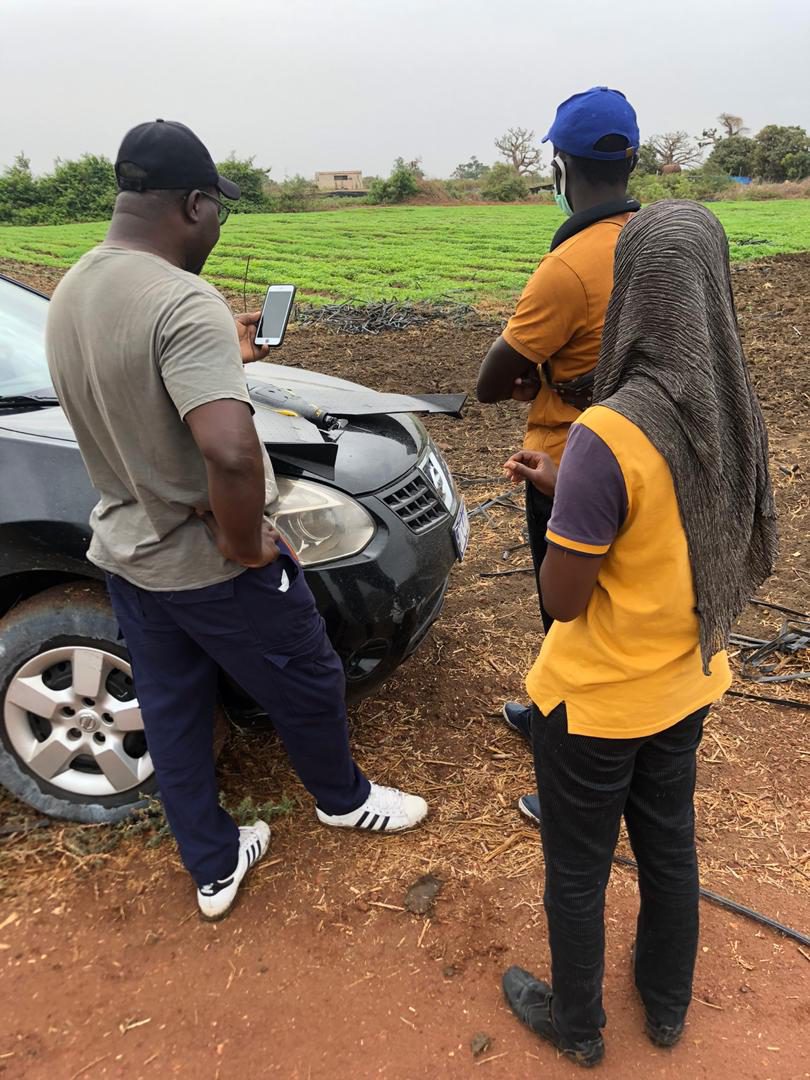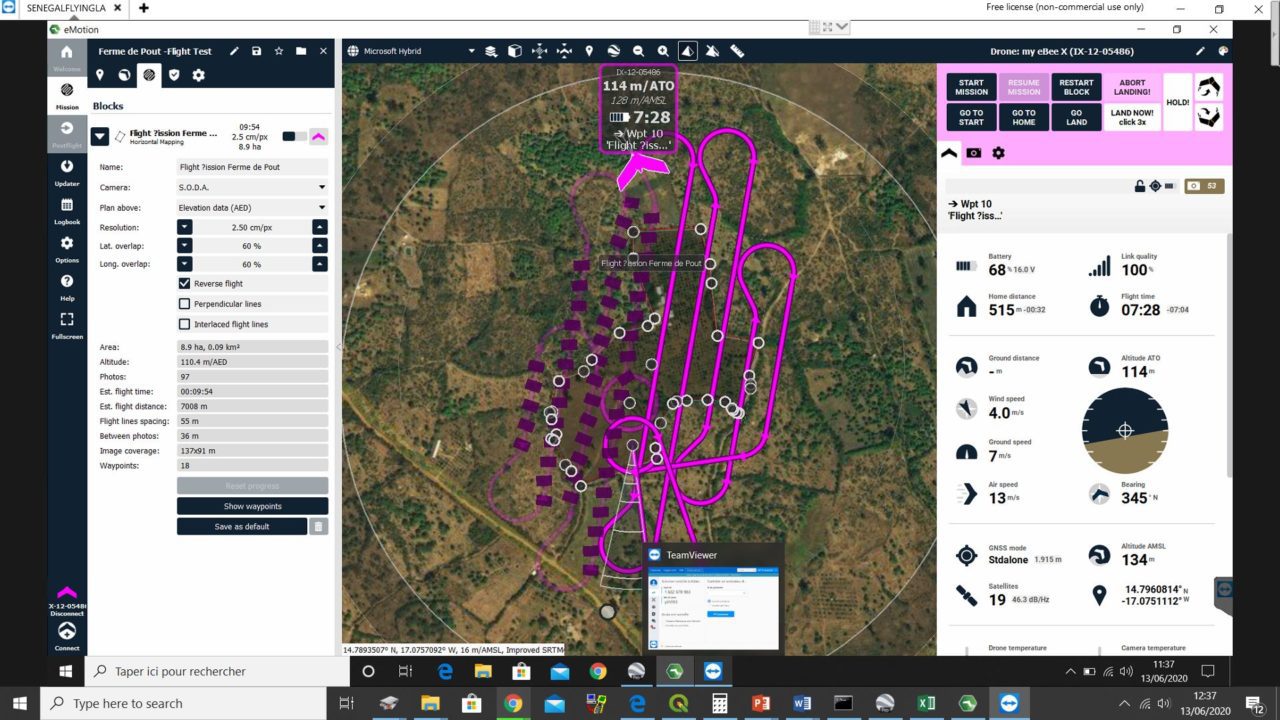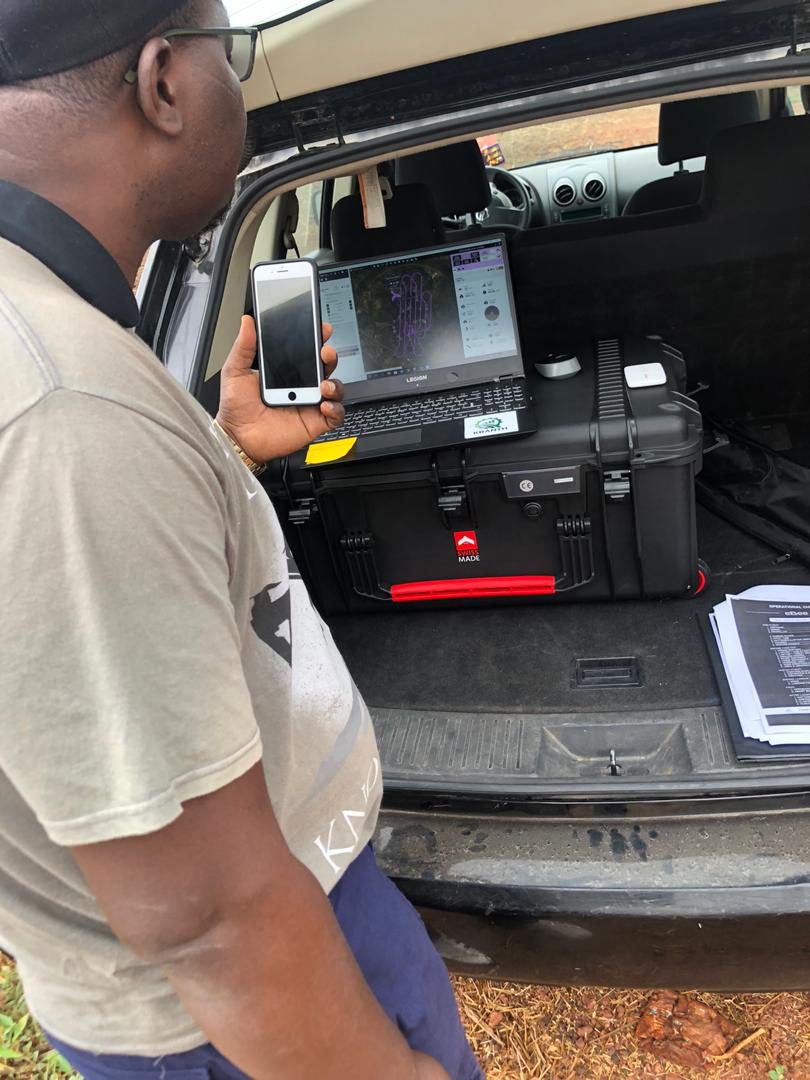
For the First Time, Flying Labs Conduct Fully Remote Drone Training During COVID-19
July 29th, 2020

By Tanzania Flying Labs, Senegal Flying Labs, and WeRobotics
Say you've just secured an exciting new contract to map the salt lands of Sénégal. The project aims to provide local authorities and their partners with the tools and information they need to make informed decisions on agricultural development. You've proposed to use drones, and everyone sees the value-added this technology would bring to the project. You've finally acquired the professional fixed-wing drone you've been wanting to add to your Flying Labs fleet. You and your team are excited to get the in-person drone training to make your project a resounding success. And then a global pandemic hits. Borders are shut, and airlines grounded. The salt lands still need to be mapped, but in-person training is no longer an option. This is precisely the situation that Sénégal Flying Labs were in when COVID-19 hit. As it became clear that life would not be returning to "normal" anytime soon, Sénégal Flying Labs reached out to Tanzania Flying Labs and WeRobotics to try something completely new: remote drone-training from scratch.
Tiam and team from Sénégal Flying Labs had acquired the eBee X fixed-wing drone through WeRobotics' partnership with senseFly. Yussuf from Tanzania Flying Labs had been flying eBees for years and training others on eBee platforms for years. The only catch is that he hadn't flown the new eBee X just yet. So Kaja from WeRobotics received a 2-day in-person training on the eBee X led by Andrea from senseFly during the partial lockdown in Switzerland (pictured left below). The only catch is that Kaja hadn't yet conducted a fixed-wing drone training for Flying Labs. So Yussuf (pictured right below) and Kaja teamed up with Tiam and Sénégal Flying Labs to run the remote training together.

Kaja led the first phase of the hands-on professional training, which focused on assembly and the eMotion mission planning software. This was done entirely by live video and took around 5 hours of training, including simulations. Yussuf followed up with the second phase: the actual flying of the eBee X. He first tested the team to ensure they had fully absorbed the theoretical knowledge transferred by Kaja. After this, Yussuf declared the team ready for the next phase. So Tiam and Sénégal Flying Labs (pictured below) drove up to their dedicated training site 2 hours north of Dakar. The site, 10-acres of open farmland, is an ideal location for flight training.

Meanwhile, Yussuf had just arrived at his office in Zanzibar to start the most challenging part of the training. It was around 8:30 am Sénégal time on June 13 when Yussuf kicked off the hands-on training via live video calls. The first step was a full hour of ground, hardware, and software checks. Yussuf asked the Sénégalese team to identify wind conditions and any nearby hazards to complete the risk analysis. Next, Tiam and the Sénégal Flying Labs team created the flight plan under Yussuf's continued supervision. Yussuf used the TeamViewer platform to ensure the landing was well set up if they got disconnected during the first flight. The screenshot below is the actual flight plan of the first eBee X flight.


The first flight's purpose was to enable Sénégal Flying Labs to observe the drone in flight to compare reality with the flights they ran using the simulator. The first flight also allowed the team to go through the landing procedures in a live situation for the first time. Yussuf ran them through aborted landings and other vital operational features. The flight went off without a hitch, so Yussuf asked the team to prepare for the second flight, which they would carry out to map out a designated area entirely independently. After five continuous hours of remote but hands-on training, Yussuf declared the training a success and congratulated Sénégal Flying Labs for their outstanding work and professionalism in the first-ever remote-drone training of the Flying Labs network. "Alhamdulillah!" he added from Zanzibar. Everyone could hear the joy (and relief!) in his voice.
We all learned a lot by carrying out this remote training. Trust from all sides was critical and key to making this a resounding success. This was a challenging undertaking. Multiple risks had to be actively managed. The process took serious time from start to finish, and the plans changed regularly to account for new developments. The hard work paid off and paves the way forward for more remote South-to-South training sessions led by Flying Labs in the coming months and indeed years. This is key to shifting power to local experts and suggests that with hard work, careful planning, and trust, this training can indeed be done remotely. In other words, one doesn't always need to have foreign experts and drone companies fly in halfway around the world to provide in-person training. This is especially true when the trained teams already have a strong track record in leading drone projects. Meanwhile, back in Sénégal, Tiam and the team have already carried out multiple eBee X flights to map out the salt lands in the commune of Loul Sessène, and the project continues apace.
Recent Articles

